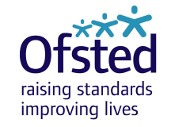The report draws on evidence from subject visits to a sample of primary and secondary schools.
Inspectors found that the position of history in schools is much more secure than it was 12 years ago when we last published a report on history education. The trend towards erosion of history as a distinct subject appears to have been reversed. Most schools have worked to develop a broad and ambitious curriculum in history, and the gaps in the quality of provision between primary and secondary schools have closed. In the schools providing a high-quality history education, leaders understand how curriculum, teaching and assessment could help pupils develop depth and breadth of historical knowledge.
However, the report notes that there are significant differences in the quality of history education between schools. In the best schools, pupils’ knowledge of the past is wide-ranging and connected as teachers go beyond the most well-known aspects of historical periods to explore how people lived in the past in more detail. In other schools, pupils’ knowledge is less secure because they are not taught to make these connections between different historical periods or events. The report also highlights areas for improvement, including the need for more ambitious curriculum plans when teaching pupils about how historians study the past.

